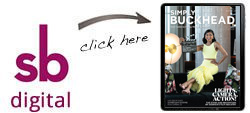FUN SONGS, SUPPORTIVE TEACHERS CREATE EDUCATIONAL HARMONY.
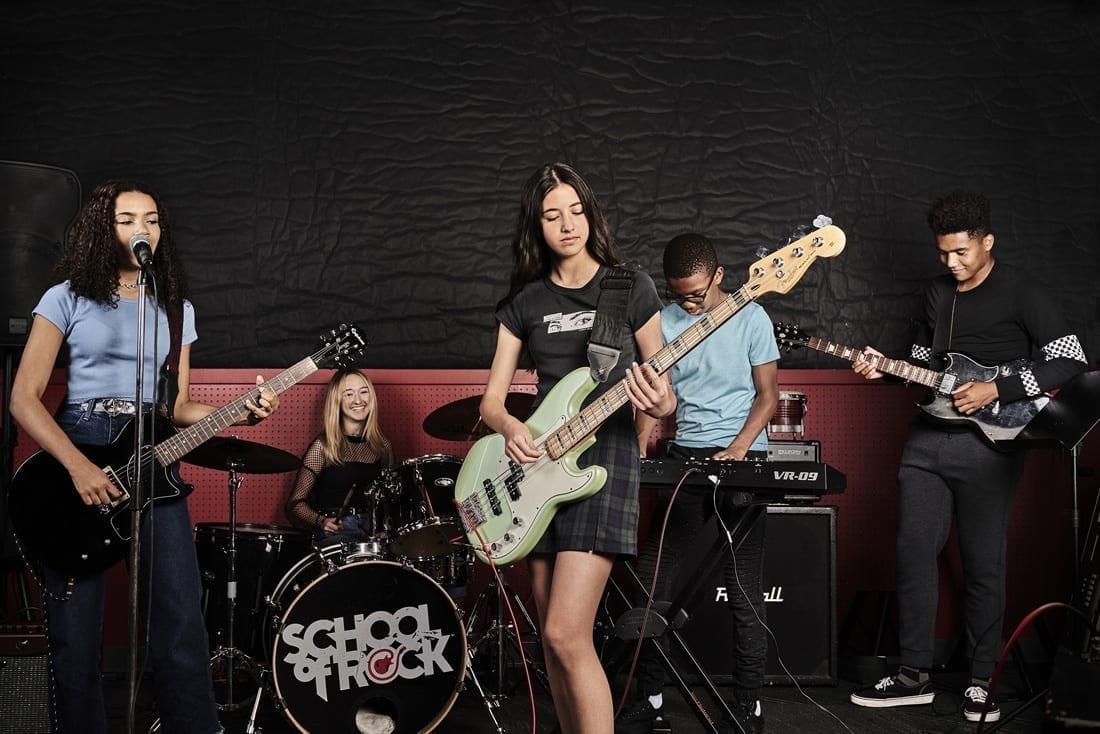
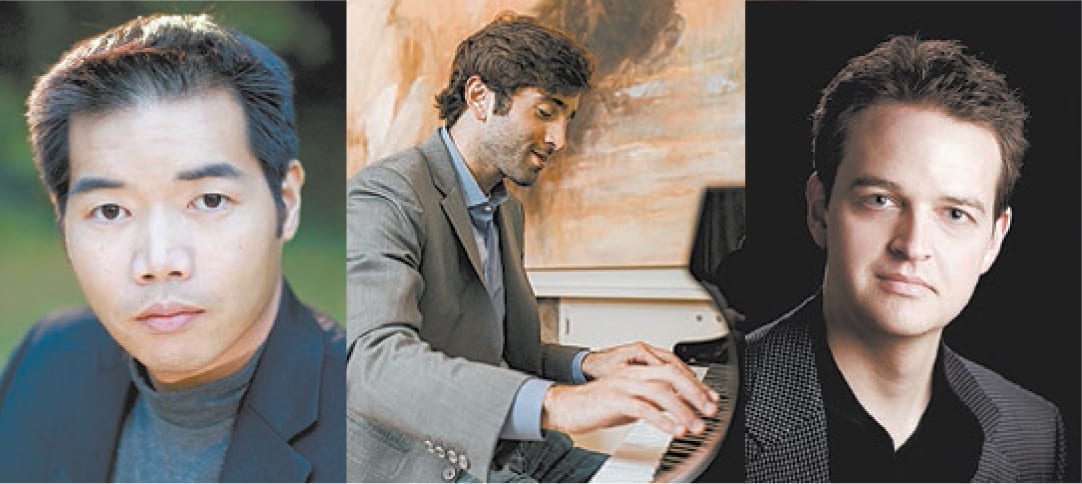
Brandon Voss’ first taste of music education hit a sour note. Voss, then 9, eagerly accepted his organist dad’s offer to start piano lessons in Memphis, Tennessee, because music looked fun. But the elder Voss proved to lack the patience to teach his son, who then studied with more than 40 piano teachers over two years.
That bewildering start proved fruitful for Voss, now a professional saxophonist who teaches music at the Fusion Academy Buckhead. “With me listening to so many different sounds, I heard so many different ways emotions can be expressed, so it made me curious.”
Like other professional musicians who teach, Voss also learned that music education should start by the end of elementary school, that lessons should emphasize fun and a love of music, and that music education provides lifelong, life changing benefits.
Joe Alterman, a Sandy Springs native who started piano lessons at 5 and kept going the next six years only because his parents wouldn’t let him quit, says that even if he weren’t a professional jazz pianist and the executive director of Jewish cultural organization Neranenah, his ability to play music would pay off as a way to unwind each night.
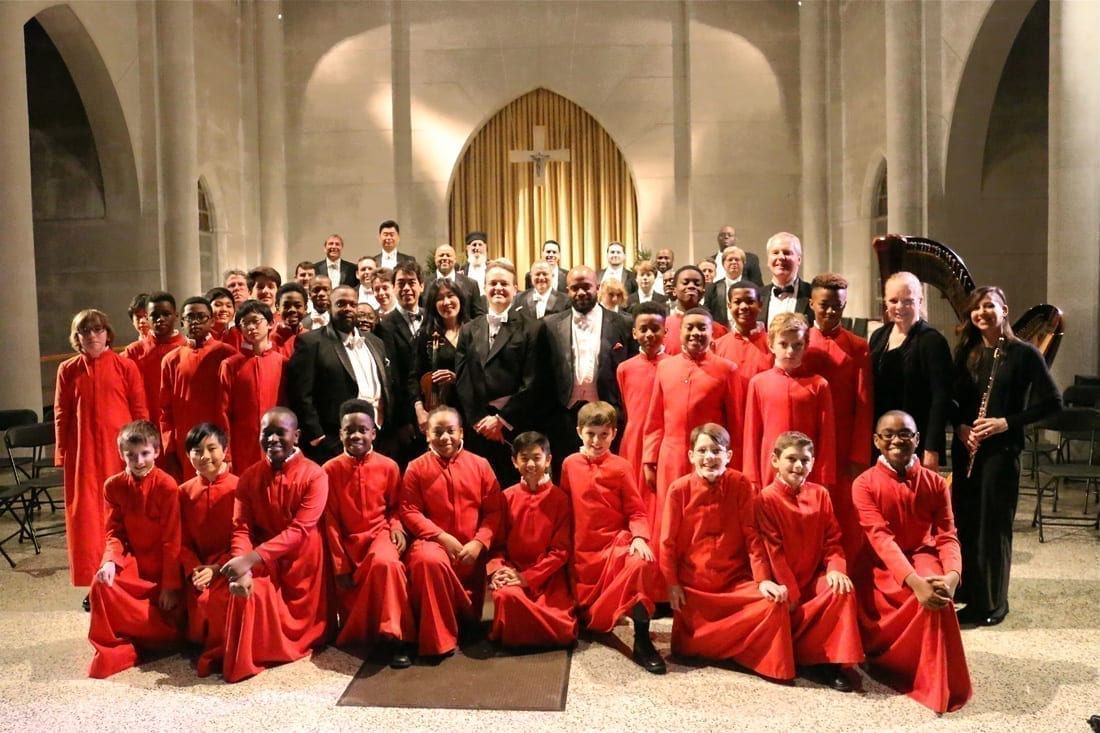
“Music is not only a universal language, but for a lot of people, music is a respite,” says Paul Nance, a drummer and the general manager of Buckhead’s School of Rock Atlanta. “Music is a release. Music is a safe space.”
Huu Mai, the accompanist for the Atlanta Boy Choir and a teacher of piano, voice, composition, violin and conducting, says, “My primary goal, along with helping them to become the best musicians they can, is about helping them become the best human beings they can.”
Mai says music education teaches discipline, kindness and patience. “Everything we do is a composite of something that they can apply to some other part of their lives.” Robert Henry, the choir’s interim director, adds leadership, responsibility and camaraderie to the benefits and says music helps overall grades as an extracurricular activity that can have a profound influence.
Voss says that learning music develops relationships, connections, character, identity, creativity, critical thinking, motor skills and more. He also slips history and other subjects into his personalized lessons integrating music production, recording and songwriting with performance at Fusion Academy, a private school for sixth- to 12th-graders.
“Learning shouldn’t be painful,” Voss says. “It shouldn’t be a drag.”
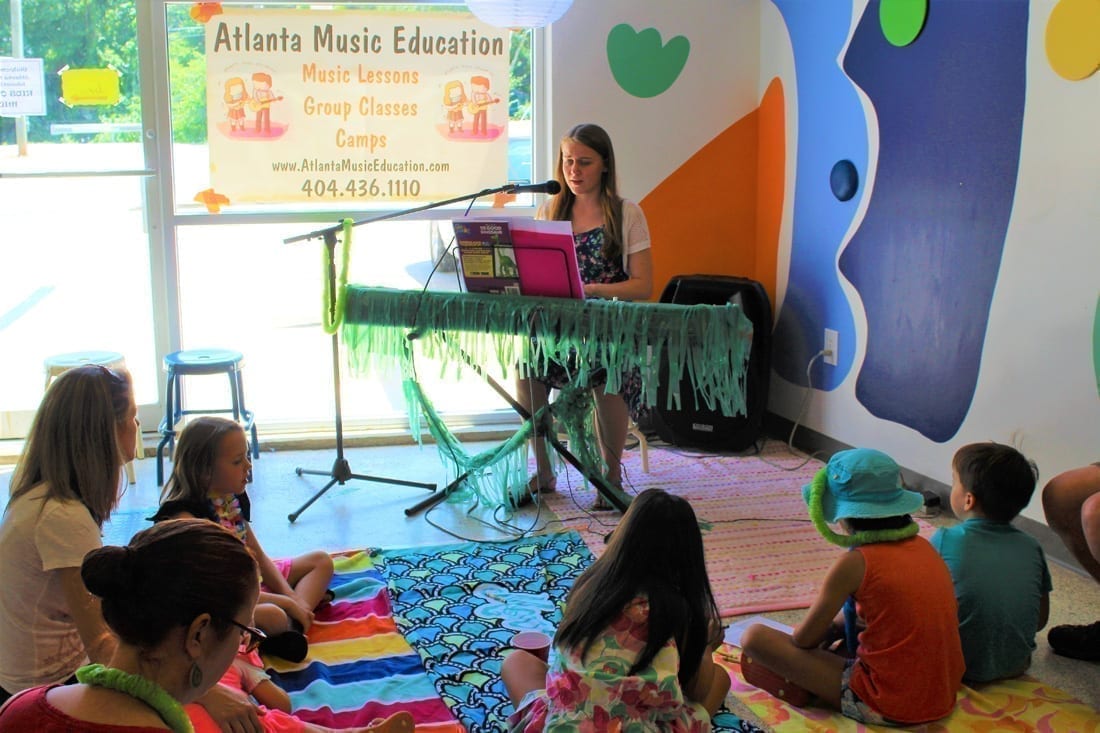
Elexa Bancroft, who opened Atlanta Music Education for in-home teaching in 2011, agrees that fun is key, so her instructors bring G-rated versions of radio hits and musicals such as Hamilton to their students, who range from age 3 to 15.
Bancroft got her start as a toddler screaming The Little Mermaid songs at the top of her lungs, then began voice lessons as an elementary school student who could match the high notes of her idol and peer, Charlotte Church.
“What are some fun things to make that old dead guy more relatable?” says Bancroft, an opera singer who served as the Capitol City Opera’s education director before the pandemic and wishes her childhood piano teacher had been less by-the-book. “What’s a funny story about Mr. Mozart? Did you know that Mr. Beethoven loved macaroni and cheese?”
Henry, who started playing piano at 7, relates Gustav Holst’s The Planets to John Williams’ Star Wars compositions to help his choir members connect with the music.
Adding a dash of pop culture to the classics broke the boredom of piano lessons for Alterman from age 5 to 11. He still remembers his excitement upon learning the opening notes to the “Happy Days” theme.
He might have fallen in love with music sooner if he hadn’t suffered slaps on the wrist whenever he strayed from classical instruction. “Technique is necessary, but it’s only a means to an end, and music is the end,” he says. He urges parents who love music to play it for their children as much as possible and watch how they react. If toddlers bang on the table, for example, they might be budding musicians.
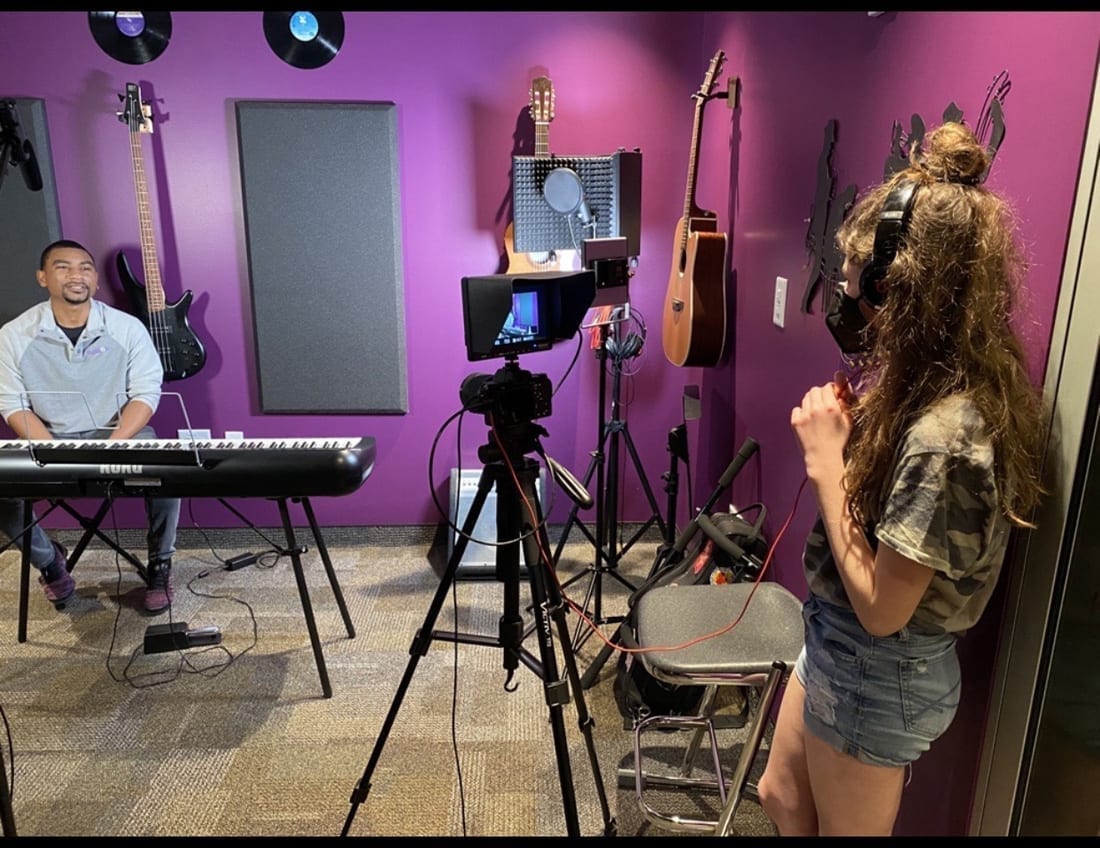
Listen for whether that banging has a pattern and doesn’t sound like shoes in a dryer, Nance says. Also, observe whether a child seems like a natural entertainer and likes to be the center of attention.
“I do think that all students have something musical in them,” says Bancroft, whose studio offers a free “fit session” to get to know the child, the parents, their interests and their goals.
Similarly, School of Rock offers a free 30-minute trial lesson to assess whether a child is ready. Some 5-year-olds are; sometimes Nance, who first took drum lessons at school when he was 9, tells them to come back in a few years. Many public schools have cut back on music programs, so Alterman says it’s “just important to have young people turned on to anything musical.”
Henry, who has worked with the Boy Choir since 1997, acknowledges that its pursuit of perfection led to a militaristic reputation, but now it operates “with a little more love and care.”
He has seen the benefits of a positive rehearsal atmosphere with the nearly 50 6- to 13-year-olds in the choir, including his son. “Once you go negative,” Henry says, “it’s really hard to go back, and you kind of lose that spark and connection with that young child.”
That child could walk away from music because “for most of our students, we are the only music educator they may ever have,” says Mai, who found his own piano lessons such an abusive experience when he started at 7 that he’s not sure why he kept going.
Parents, like teachers, need to be patient, Voss says. “Sometimes when we push, we forget to applaud the good things. We always look for criticism. That usually will push them away.”
PUTTING A PRICE ON LEARNING
Here’s what you can expect to pay for your child to study music:
LESSONS: Weekly half-hour lessons can be $140 per month online, as at Sandy Springs Music (sandyspringsmusic.com), and $190 (Atlanta Music Education) to $200 (School of Rock Atlanta) in person.
INSTRUMENTS: Monthly rentals range from $32.09 to $69.54 at Sandy Springs Music and $22 to $60 at Sandy Springs’ New School of Music (newschoolofmusic.com), which offers trial rates and discounts, the deepest of which are for its students. Buying a new instrument can cost as little as $30 for a ukulele at Amazon or more than $30,000 for a grand piano at Cooper Piano (cooperpiano.com) in Brookhaven.
MUSIC BOOKS: They range from less than $6 to more than $20.
EXTRAS: Budget for accessories such as straps, sticks, stands and picks, depending on the instrument. You also might pay fees for recitals, competitions and other events.
WHEN TO START
There’s no universal “right” age to start music lessons, School of Rock Atlanta’s Paul Nance says, though he thinks third or fourth grade is right for many.
He notes the physical limits: A child has to be able to touch the pedals and the highest parts of a drum kit, hit the right piano keys to play chords or hold a guitar or bass properly while reaching up the neck.
All of Elexa Bancroft’s instructors at Atlanta Music Education train on the ukulele to address the physical challenges for young students. The instrument is smaller and cheaper than a guitar and has only four strings, which are easier on fingers because they’re nylon.
Even if they struggle with the physical aspects, says Brandon Voss of Fusion Academy, youngsters can progress mentally by thinking about what to do and learning to listen. “As long as they express some kind of interest in it, that’s when you want to strike.”
The Atlanta Boy Choir’s Robert Henry won’t accept students younger than 5, but he says parents can give younger children a start by clapping along with the radio or making instruments available around the house.
The danger in waiting as late as high school, Nance says, is that teens will quit in frustration or embarrassment at not being as good as peers who have played for years.
Voss teaches humility to all his students, telling them that when they make mistakes, “I’m going to laugh hard. But you’re going to laugh, too, because I’m not laughing at you or the fact that you messed up. I’m laughing because I want you to know it’s OK to mess up. We can have fun messing up.”
Atlanta Boy Choir
All Saints’ Episcopal Church
634 W. Peachtree St. N.W.
Atlanta 30308
404.378.0064
atlantaboychoir.org
Atlanta Music Education
404.791.1111
atlantamusiceducation.wordpress.com
Fusion Academy Buckhead
3414 Peachtree Road N.E.
Suite 200
Atlanta 30326
762.224.0422
fusionacademy.com/campuses/buckhead
Joe Alterman Music
joealtermanmusic.com
School of Rock Atlanta
2989 N. Fulton Drive N.E. Suite D
Atlanta 30305
404.218.3105
locations.schoolofrock.com/atlanta
Jack-of-all-trades writer covering almost anything but beauty and fashion at Simply Buckhead; fond of flamingos and sloths.


